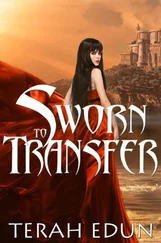'I've no need of Perun's help,' Ivarr said confidently. 'He
didn't assist me when I was a youngster. I made my own way. Let others believe in forest hags with iron teeth and claws, or that Crnobog the black God of death seizes us when we die. When I meet my end, if my body is available for burial and not hacked to pieces, it will be enough for my companions to treat my corpse as they wish. I will no longer be there to be concerned with their superstitions.'
For a brief moment I thought to tell him about my devotion to Odinn the All-Father, but the intensity of his fatalism held me back and I changed the subject.
'How was it,' I asked, 'that our kholops took part in the raid for slaves with such enthusiasm when they themselves are slaves?'
Ivarr shrugged. 'Kholops are prepared to inflict on others what they themselves suffer. It makes them accept their own condition more easily. Of course I took back their weapons once they had completed the task and now they are kholops once again.'
'Aren't you afraid that they, or our new captives, will attempt to escape?'
Ivarr gave a grim laugh. 'Where would they find themselves if they did? They are far from home, they don't know which way to turn, and if they did run away, the first people to find them would merely turn them back into slaves again. So they accept their lot.'
In that opinion, Ivarr was wrong. Two days later he gave our male captives a little more space. The prisoners' wrist and ankle fetters had been fastened to the boats' timbers, so they were forced to crouch in the bilges. Ivarr ordered that the shackles be eased so they could stand and move about. As a precaution he kept them chained in pairs. This did not prevent two of our male captives from taking their chance to leap overboard. They flung themselves into the water and made no attempt to save their lives. They deliberately raised their arms and sank beneath the water, dragged down by the weight of their manacles, so there was no chance that our cursing oarsmen could turn and retrieve them.
The great river was now so wide that it was as if we were floating on an inland sea, and we were able to raise sail and greatly increase the distance we travelled each day. A full cargo of slaves and furs meant we had no reason to halt except to revictual the flotilla at the riverside towns which began to appear with increasing frequency. The townsfolk recognised us from a distance because only the Varangian craft had those curved profiles from the northern lands and the local traders were waiting with what we required.
We bought food for our slaves, mostly salted and dried fish, and cheap jewellery to prettify them. 'A well-turned-out slave girl gets ten times the price than one looking like a slut,' Ivarr told me, 'and if she has a pretty voice and can sing and play an instrument, then there's almost no limit to the money a rich man will pay.' He had taken me to the market in the largest of the river cities where he had a commercial arrangement with a local merchant. This man, a Jewish Khazar, specialised in the slave trade. In exchange for our least favoured slave, a male, he provided us with lengths of brightly coloured fabric for women's clothes, necklaces of green glass, beads and bangles, and an interpreter who knew the languages spoken along the lower river.
'What about the men and children we've captured?' I asked Ivarr as we waited in the Khazar's shop for the goods to be delivered.
'The children, that depends. If they are sprightly and show promise, they are easy to sell. Girls are usually more saleable than boys, though if you have a really intelligent male you can sometimes be lucky in Miklagard, the great city, particularly if the lad has fair skin and blue eyes.'
'You mean for men who like that sort or for their wives?'
'Neither. Their masters arrange to have their stones removed, then educate them. They become trusted servants, secretaries and bookkeepers and such like. Some have been bought for the imperial staff and have risen to power and responsibility. At the highest levels of the emperor's government are men who have been gelded.'
I wondered what was in store for the twins we had captured. The Khazar Jew had offered to buy them, but Ivarr would not hear of it. 'The Jews rival us for mastery of the slave trade,' he said, 'but they are middle men. They don't take the risks of raiding among the tribes. If I can sell the twins direct to a client, the felag will make a far greater profit.'
He had given the two girls into the care of his favourite concubine. She was gentle with them, showing them how best to wash and braid their hair, how to apply unguents to their faces and wear the clothes and jewellery we supplied. When the sun shone brightly, she insisted that the girls wear heavy veils to protect their fair complexions. There was no possibility that the girls would be molested by any of our men. Everyone knew that untarnished twins were far too valuable.
The weather was very much warmer now. We set aside our heavy clothes and took to wearing loose shirts and baggy trousers made of many folds of cotton. The loose trousers meant that we could scramble unhampered about the boat, yet remain cool in the increasing heat of summer. At dusk we landed on sandbanks and slept in the light tents we had purchased so we could take advantage of the night breeze. The river had left behind the dense forests, and now flowed through flat, open country grazed by the cattle of the local tribes whose language, according our interpreter, was spoken by the horse-riding peoples further east. Whenever we encountered the boats of other river travellers, they sheered off like frightened minnows. It did not matter whether people thought of us as Varangian or Rus, it was clear that we had an unsavoury reputation.
'Ivarr! On the river bank! Serklanders!' Vermundr called out one hot afternoon. The excitement in his voice made me look round to see what had made him so eager. In the distance was a small riverside village and beside it a cluster of long, low tents made of dark material. In front of the tents half a dozen river boats were drawn up on the shore.
Ivarr squinted across the glare of the river's surface. 'Thorgils, you bring good fortune with you yet again,' he said. 'I've never known Serklanders so far north.' He ordered the helmsman to steer for land. With our slave raid fresh in my mind, I wondered if Ivarr planned to swoop down on the strangers and rob them like a common pirate.
I said as much to Vermundr, and he sneered back at me. 'Perun knows why Ivarr thinks so much of you. Serklanders travel well protected, by Black Hoods usually.'
As we came closer to the landing place, I saw what he meant. A squad of men, wearing long dark hooded gowns, emerged from the tents and took up positions on the river bank, facing us. They deployed with the discipline of trained fighting men and were armed with powerful-looking double-curved bows, which they trained on us. Ivarr stood up in the bow of our boat, his brawny arms held well away from his body to show that he was unarmed.
'Tell them we come to talk of trade,' he told our interpreter, who shouted the message across the gap. The leader of the Black Hoods brusquely gestured that we were not to land close to the tents, but a little further downriver. To my surprise, Ivarr meekly obeyed. It was the first time I had seen him accept an order.
He then sent our interpreter to talk with the strangers while we set up our camp. On Ivarr's instructions, we took more care than usual. 'Expect to be here for a few days,' he said. 'We need to make a good impression.' By the time the interpreter returned, we had pitched our tents in a neat row and Ivarr's favourite concubine had shepherded our batch of slave girls to their own accommodation, a separate tent set beside our leader's pavilion with its array of rugs and cushions.
Читать дальше








